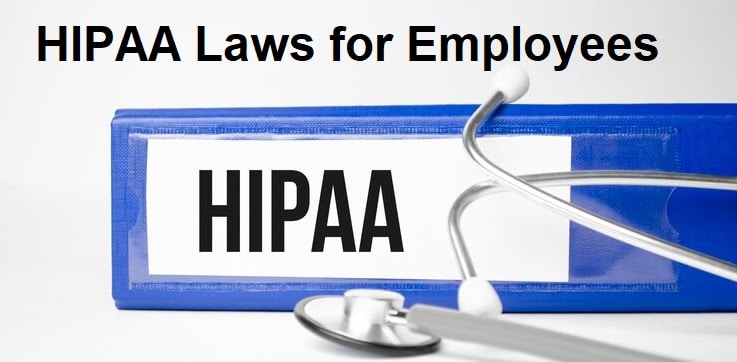The Health Insurance Portability and Accountability Act (HIPAA) is a crucial piece of legislation in the United States, enacted in 1996. The central goal of HIPAA is to protect individuals’ health information, ensuring that it remains confidential, secure, and available when needed.
HIPAA laws for employees are as important as those for the organization itself. Following HIPAA laws isn’t only about avoiding penalties or maintaining a legal foothold. They are also crucial to foster trust and protect the patients’ rights whose data you manage.
This blog post will explain HIPAA laws for employees and clarify how to ensure workplace privacy and compliance. We will also discuss why leveraging MedStack’s HIPAA compliance software could potentially save you from a tedious hiring process, safeguard your business from costly HIPAA-related oversights, and help your organization to earn the trust of the healthcare industry.
Overview of HIPAA Regulations
HIPAA laws apply to various organizations termed ‘covered entities’ and their ‘business associates.’
Covered entities include health plans, healthcare clearinghouses, and healthcare providers, such as doctors and hospitals, that transmit health information electronically.
Business associates refer to any individual or entity performing activities involving the use or disclosure of Protected Health Information (PHI) on behalf of a covered entity.
The significance of HIPAA laws is multifold:
- Privacy: HIPAA establishes nationwide standards to protect individuals’ medical records and other personal health information. This gives patients the right to understand who is accessing their health information and why.
- Security: HIPAA requires covered entities and business associates to implement strong physical, technical, and administrative safeguards to ensure the integrity and confidentiality of electronic PHI. This includes protection from unauthorized access, alteration, deletion, or transmission.
- Accountability: HIPAA laws enforce strict penalties for non-compliance, including substantial fines and potential criminal charges, ensuring that organizations take the necessary steps to protect PHI.
HIPAA is divided into several key components, each designed to protect individuals’ health information comprehensively. These regulations cater to many aspects, from data privacy to insurance reform.
Below, we’ll examine these provisions in more detail.
The Privacy Rule
This rule safeguards individuals’ medical records and personal health information, granting patients rights over their data.
The Security Rule
Focused on electronic health information, this rule requires physical, administrative, and technical security measures to protect data from unauthorized access.
The Breach Notification Rule
Entities must notify affected individuals and relevant authorities promptly in case of a data breach involving health information.
The Enforcement Rule
This rule outlines penalties for HIPAA non-compliance and the procedures for investigations and appeals.
The Omnibus Rule
Updated in 2013, the Omnibus rule expanded obligations, increased penalties for non-compliance, and further strengthened individuals’ rights, including access to electronic health records.
HIPAA and Employees
Regardless of the industry, understanding HIPAA compliance is essential for every employee if your business handles Protected Health Information (PHI).
Healthcare Providers
Employees of healthcare providers, including hospitals, clinics, and private practices, have direct access to PHI as part of their daily tasks.
Therefore, they must understand HIPAA laws to protect patient privacy. This involves careful handling of records, securing communication channels, and maintaining strict access control to health information.
Insurance
In the insurance industry, employees often deal with health-related claims that involve processing PHI.
Ensuring the secure transmission and storage of this information and restricting access only to those who need it to carry out their job functions is crucial to remain HIPAA compliant.
Digital Health
For digital health or health tech companies, HIPAA compliance is equally important. Developers, data analysts, and other technical roles must implement robust security practices to protect PHI’s integrity, confidentiality, and availability.
Non-technical roles, such as sales or customer support, should also be aware of HIPAA obligations to avoid accidental disclosures during their interactions.
Beyond these sectors, any business that provides services to covered entities—such as legal, consulting, or administrative support—also falls under the umbrella of ‘business associates.
Employee Responsibilities Under HIPAA
HIPAA laws outline the following responsibilities for employees within organizations:
- Secure Handling of Medical Records: Avoid unauthorized access by securely storing printed records with PHI.
- Preventing Unauthorized Access to Patient Files: Employees should not view patient records for non-work-related reasons.
- Protection Against Lost or Stolen Devices: Enhance the security of work devices with access to PHI. Implement safeguards such as encryption, dual-authentication passwords, and biometric scans.
- Avoiding Discussion of Patient Information: Casual conversations about patient cases, whether at work or home, should be discouraged.
- Safe Messaging Practices: If patient information needs to be shared via messages or texts, every employee should have an encryption application installed to protect the data.
- Managing Social Media Activity: Posting pictures or identifiable patient information without their consent violates HIPAA.
- Safe Remote Work Practices: When doctors review casework at home, they must ensure that PHI is not visible to others. Leaving PHI unattended on a home computer screen is a violation of HIPAA.
Training and Education
It’s essential for employees to fully understand their responsibilities under these HIPAA laws, not just to follow them but also to make informed decisions in their daily healthcare operations.
HIPAA training equips them with the knowledge to make informed decisions when handling PHI, helping to reduce the likelihood of accidental breaches.
An effective HIPAA training program should cover key elements of the regulations, including:
- Understanding of the basic principles of the HIPAA law.
- The individual rights of patients under HIPAA.
- The types of information that are protected.
- The organization’s specific policies and procedures relating to PHI.
- How to handle a potential breach of PHI.
Training should be provided regularly to account for new hires and to ensure that current employees are up-to-date on any changes in HIPAA regulations or internal policies.
Partnering with MedStack can help to ensure your employees are prepared to handle PHI and boost your organization’s ability to tackle cybersecurity threats. Exos by MedStack helps your employees to meet the essential requirements for working at a digital health company and effectively equips them with the knowledge they need to protect sensitive data.
Enforcement and Penalties
To ensure the integrity of HIPAA regulations and protect sensitive healthcare information, enforcement and penalties are in place for violations.
Here’s an overview of infractions and HIPAA sanction laws:
1. First Simple Infraction in Three Years
Level one infractions typically involve accidental exposures of protected health information (PHI). Common examples include employees sending unencrypted PHI via email or failing to log out of a database, leaving PHI vulnerable.
Although seemingly minor, these infractions can easily result in a breach.
Recommended Sanction Policies for Category One HIPAA Violation:
- Written Letter of Reprimand: A formal letter addressing the employee’s wrongdoing, emphasizing the importance of compliance, and warning of further consequences.
- Record Retention: The letter should be stored in the employee’s file for six years to document the infraction and subsequent disciplinary action.
2. Second Simple Infraction or First Serious Infraction in Three Years
Level two infractions encompass repeated instances of level one infractions or first-time serious offenses, such as unauthorized access to client/patient information of a neighbor or relative.
Recommended Sanction Policies for Category Two HIPAA Violation:
- Written Letter of Reprimand: A second letter reiterates the infraction’s gravity and emphasizes the need for improved compliance.
- Suspension Without Pay: A one-week suspension serves as a stronger disciplinary measure to underscore the significance of the violation.
It is essential to recognize that level one and level two infractions, although less severe, can cause substantial harm if left unaddressed.
3. Third Simple Infraction or Second Serious Infraction in Three Years
Level three infractions involve repeated level one infractions, repeated mid-level infractions, or very serious offenses intended to cause harm to multiple individuals. It is important to note that level three violations can occur regardless of the employee’s previous infractions.
Recommended Sanction Policies for Category Three HIPAA Violation:
- Termination of Employment: Given the seriousness of the infraction, employers are advised to dismiss employees who commit level three infractions.
- Reporting to Authorities: In severe cases where the violation poses significant risks or intentional harm, it may be necessary to report the infraction to state or federal authorities. These authorities may then choose to pursue legal action against the offender.
Conclusion
Staying on the right side of HIPAA laws can feel like walking a tightrope – one misstep could have serious repercussions.
Take the proactive step towards HIPAA compliance by partnering with MedStack. Protect your patients’ privacy, avoid costly oversights, and maintain the trust and reputation of your organization.





